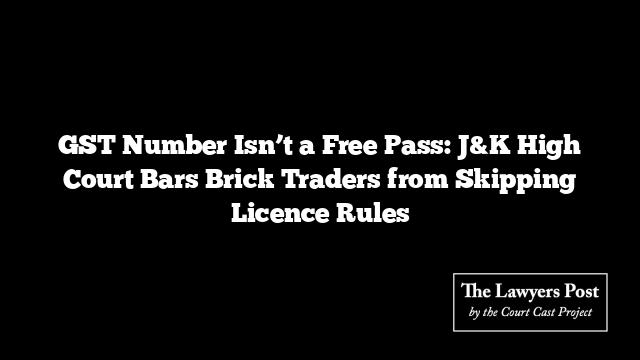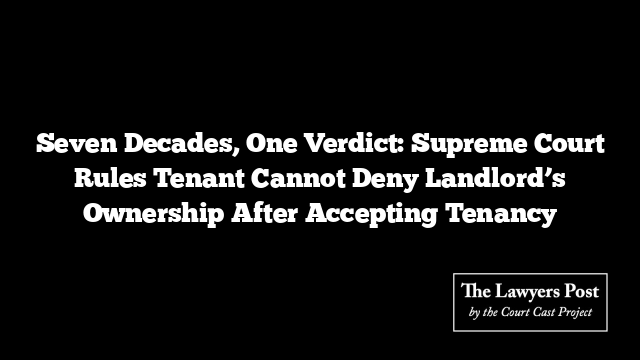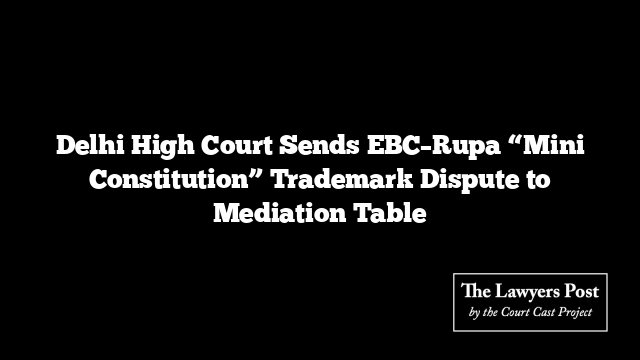The Jammu & Kashmir and Ladakh High Court has drawn a sharp line between tax compliance and legal authorization, ruling that a GST registration alone cannot serve as a license to operate in regulated trades like brick dealing.
Justice Wasim Sadiq Nargal, speaking through a firm and reasoned order, clarified that a trader’s GST registration is merely proof of being part of the tax net — not a blanket approval to engage in any business.
“To argue that paying tax legitimizes unlicensed trade would mean that taxation could override all other laws — an absurd idea that collapses the very framework of regulation,” the Court observed.
The case arose when brick-laden trucks entering Jammu & Kashmir from outside were seized, and penalties were imposed under the Jammu and Kashmir Brick Kiln (Regulation) Act, 2010, and its 2017 Rules. The traders argued that they weren’t required to obtain local licences since they were not manufacturing bricks within the Union Territory — merely selling them. They also claimed that GST registration was sufficient to conduct their business.
The Court, however, disagreed, making it clear that the licensing mandate under Rule 3 of the 2017 Rules extends to both kiln owners and dealers. By defining “dealer” in Section 2(e) of the Act, the legislature had deliberately brought every player in the brick trade — from producers to sellers — under a unified system of oversight.
Licensing, the bench noted, isn’t just bureaucratic red tape. It ensures that environmental norms are met, substandard goods are checked, and the local market isn’t destabilized by unchecked inflow of unregulated bricks. Without these controls, the Court warned, “black marketing, hoarding, and price manipulation would erode fair competition and harm those who follow the law.”
Finding that the Deputy Commissioners of Kathua and Samba had acted within their statutory authority, the Court upheld their actions and dismissed the writ petition, noting that the petitioners hadn’t even availed their appellate remedy before approaching the Court.
The verdict reinforces a crucial principle — taxation is about revenue, not regulation; and paying tax cannot wash away the need for proper licensing in a governed marketplace.





